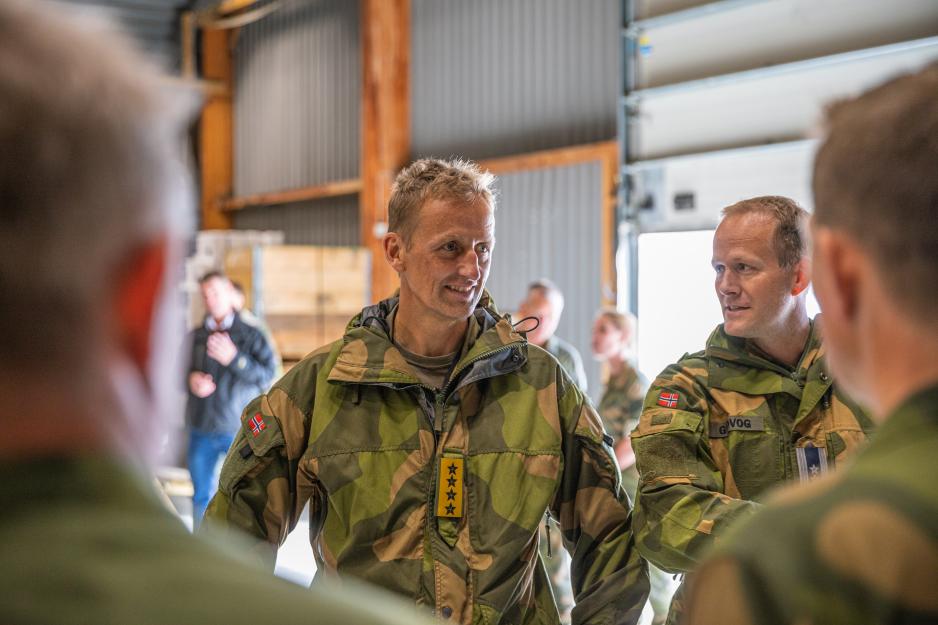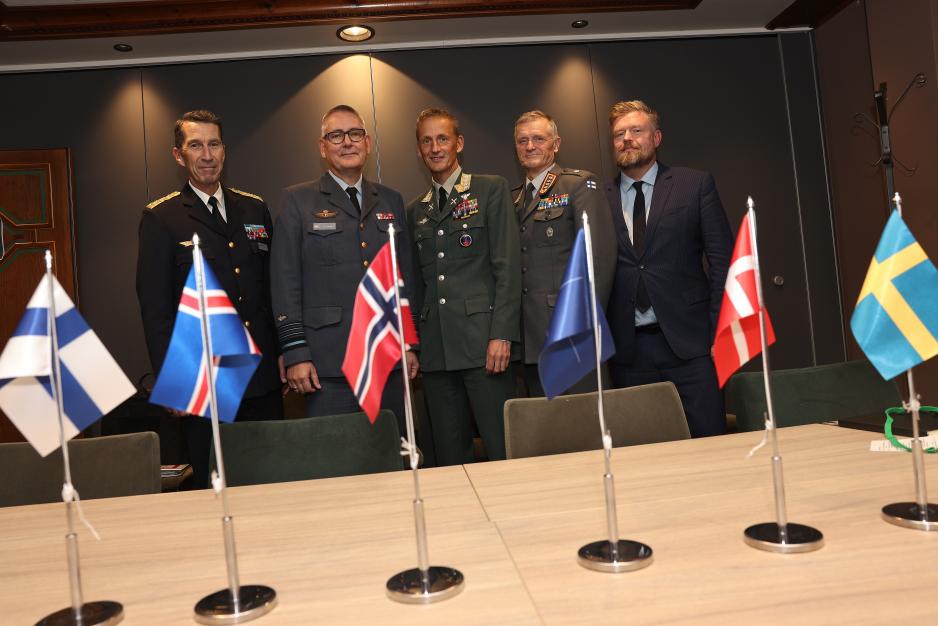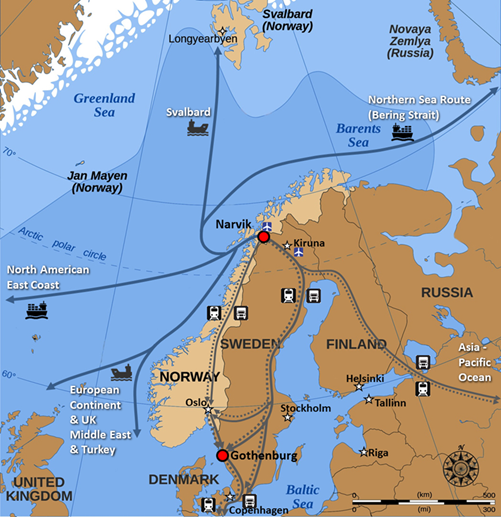Nordic response exercise logistics impacted as Ofoten railway line remains closed

“The Ofoten Line is important to the Armed Forces. Its significance will increase with Sweden and Finland as NATO members,” says Chief of Defense Kristoffersen to High North News.
The railway line connecting the north of Norway and Sweden has been closed for two months due to an extensive derailment near the Norwegian border in Northern Sweden.
Norway’s Chief of Defense, Eirik Kristoffersen, says the derailment has affected the logistics ahead of the military exercise Nordic Response, starting at the beginning of March.
“Many of our allies, who had planned to use the Ofoten Line for transport, have found other solutions such as ships and road transport,” explains Kristoffersen in an interview with High North News.
The Ofoten/Iron Ore Line
- Stretches from Narvik in Northern Norway to Boden in Northern Sweden, with one branch extending to Luleå (about 50 miles).
- Central to passenger traffic, freight traffic, and iron ore transport.
- It has a single track and is very vulnerable to derailment.
- Affected by low capacity and overloading.
- Opened in 1902. The main objective was the transport of iron ore from the mines in Norrbotten.
An important railway to the Armed Forces
Extensive repair work, as well as bad weather and large amounts of snow, has led to the railway, called the Ofoten Line on the Norwegian side and the Iron Ore Line on the Swedish side, not yet being opened.
The derailment has seen consequences for both businesses and people in the North. The railway is Sweden’s most heavily trafficked railway, and is also one of Northern Norway’s most important transportation artery. As indicated, it also has great significance to defense and preparedness.
“The Ofoten Line is important to the Armed Forces – in the same way it is important to civil society in Northern Norway,” the Chief of Defense stresses.
“The railway is generally important for supplies to Northern Norway, but it is also an important line we use, particularly in connection with exercises,” he elaborates.
“The Ofoten Line’s significance will increase with Sweden and Finland as NATO members.”
Connects Norway and Sweden in the North
The derailment nearly two months ago is one of several derailments on the railway in the past years, and the debate about a double track has resurfaced again.
“How close we are to a double track is a matter of costs, but I think the Iron Ore Line is a higher priority after this derailment,” says the Swedish Commander Stefan Lundqvist. He is a military researcher and teacher at the Swedish Defence University.
“The Iron Ore Line to Narvik is one of our greatest bottlenecks, mainly for the Swedish mining industry. The derailment has already cost Sweden large sums,” he says to High North News.
The East-West connection becomes more important

Lundquist considers the development of the Iron Ore Line to be significant in light of the broader geopolitical and geoeconomic development at the Cap of the North.
In Northern Sweden, billions are scheduled to be invested in green industries, which will depend on the railway line in the coming years.
With Finland’s accession to NATO and an upcoming Swedish NATO membership, the Ofoten region and the opportunities for moving military resources from here and eastwards become more significant.
“The development of the railway line is a Swedish-Norwegian matter which must be improved in layers. We must ensure that Sweden and Norway are logistically connected from west to east,” says Lundqvist, emphasizing that this is particularly important when connections between north and south are limited in Norway.
“However, this is less of a problem if the west-east connections are good in the north and if this is connected with north-south connections in Sweden. These links are of great military strategic importance.”

The significance of the Ofot region

“The Ofoten Line’s significance will increase with Sweden and Finland as NATO members,” stresses Chief of Defense Eirik Kristoffersen.
Central to this assessment is the role of the Port of Narvik and the Ofoten region for allied support to the entire Cap of the North, as this is a natural area for reception and transit of allied reinforcements if necessary, he explains.
The Chief of Defense also says that he gathered Nordic chiefs of defense during the Cold Response exercise in 2022 to discuss the significance of the Ofoten Line for reinforcements into Sweden and Finland if other opportunities were not open or if this was the best option, among other things.
“Communication infrastructure across the Nordic countries is one of the matters that must be seen in connection with the integration of Finland and Sweden in NATO,” he adds.
“We must consider how we can integrate civil resources in the joint defense of the Nordic region. Such as redundancy in the infrastructure, i.a. Good work is being done in many areas to develop the total defense in relation to the new situation where Sweden and Finland are also NATO members,” he concludes.
High North News is an independent newspaper published by the High North Center at Nord University in Bodø, Norway.